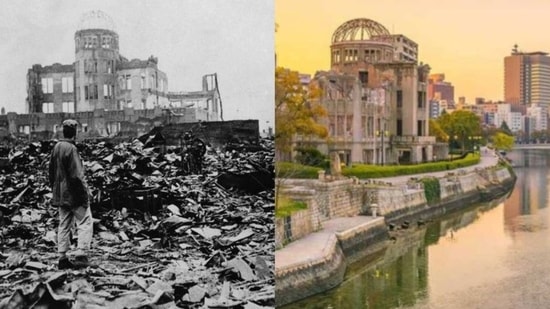
Hiroshima Day 2024: Date, history, significance and observance of 79th year of World War II atomic bombings
9 months ago | 106 Views
The city of Hiroshima in Japan stands as a poignant symbol of peace and resilience and Hiroshima Day every August, commemorates the tragic events of World War II in 1945 when the atomic bomb was dropped on Hiroshima, leading to unprecedented destruction and loss of life. On this day, conversations with Hibakusha, who share their personal stories of survival and resilience, provide invaluable insights into the human capacity for endurance and forgiveness while emphasising the importance of remembering history to avoid repeating it.
Date:
Every year, August 6 is observed solemnly as Hiroshima Day around the world and this year will be the 79th anniversary of the atomic bombing of the Japanese city in the final year of World War II.
History:
On this day in 1945, the United States dropped the very first deployed nuclear bomb in the city of Hiroshima, wiping out an estimated 39 percent of the population, most of who were civilians. The Manhattan Project, commissioned by the US, created two atomic bombs where the first one, called 'The Little Boy' was dropped in the city of Hiroshima on August 6 and the moment an American B-29 bomber dropped it on the city, an estimated 90,000 to 140,000 people were killed instantly, while thousands more were hit with generational defects that are plaguing a section of the populace to this day.
As the sun sets on Hiroshima Day, visitors leave with a renewed sense of purpose. The experiences and lessons from Hiroshima inspire a commitment to peace and a determination to advocate for a world free of nuclear weapons. In honoring the past, we carry forward the legacy of Hiroshima, striving to build a future where such tragedies never occur again.
Significance:
Hiroshima Day commemorates the 1945 tragedy which completely destroyed the city and left the country to deal with a dreadful fate even in its aftermath. It reminds the world that all wars are terrible and nuclear warfare even more so while reminding thousands of politicians, diplomats and envoys around the world that diplomacy is the only option to navigate geopolitics in the 21st century because only nine countries in the entire world currently possess more than 13,000 nuclear weapons.
Observance:
A visit to the Hiroshima Peace Memorial Museum is an essential part of the Hiroshima Day experience as it documents the atomic bombing of Hiroshima in World War II. Its park is the centerpiece of the day's activities where people gather during a ceremony to honour the victims and pledge to work towards a world free of nuclear weapons, followed by the release of doves and the tolling of the Peace Bell to create a solemn yet hopeful atmosphere, reinforcing the message of peace.
Read Also: European Roma Holocaust Remembrance Day: A personal account




















